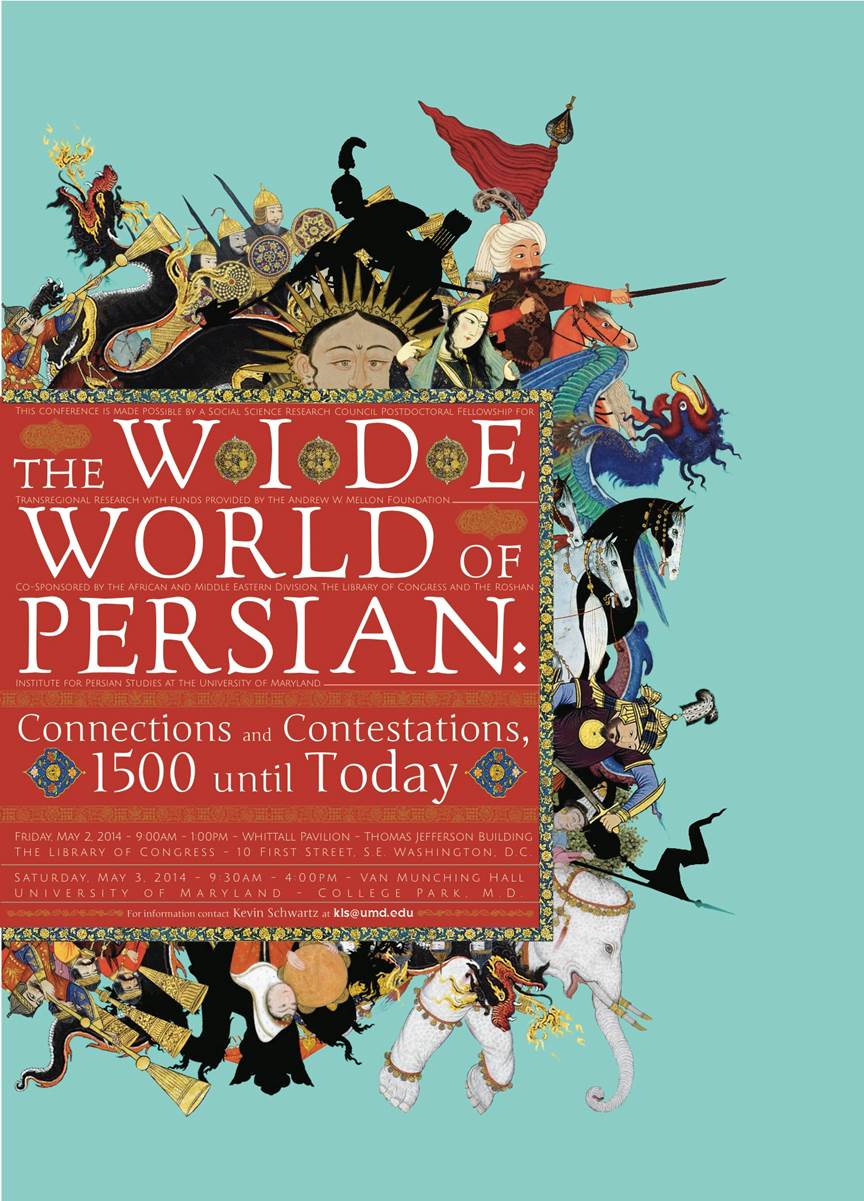The Library of Congress’ African and Middle Eastern Division (AMED) and Roshan Institute for Persian Studies at the University of Maryland present a two-day conference entitled “The Wide World of Persian: Connections and Contestations, 1500-Today” on May 2-3, 2014. The period from early modern to contemporary times features some of the defining moments in the lifespan and legacy of the Persian world. This was a period that witnessed immense interchange and connection at the height of the Ottoman, Safavid, and Mughal Empires, tension and contestation with the rise of vernacular languages, colonialism, and nationalism, as well as eventual contraction to a world largely confined to places where Persian has served as a national language. This was also a period marked by “connections and contestations” between the different peoples and places for whom engagement with Persian remained a crucial enterprise. Long-standing transregional currents and emergent local trends produced both broad similarities and stark contrasts regarding the role of Persian literary and cultural norms for different peoples and places.

The workshop seeks to examine this period that includes not only aspects of cohesion and fracture but also renewal and reconstitution of the Persian-speaking world. It asks participants to consider how “connections and contestations” around language, literature, and culture helped define the shifting contours of the wide world of Persian at different moments and places. How did local understandings and engagement with Persianate norms change during this time? What have been the transnational and transregional spaces that allow(ed) for the manifestation of Persian cultural, linguistic, and political norms and their ability to connect (or distinguish) various peoples and places throughout this period? How have the “connections and contestations” linked to Persian shaped the literature, culture, history, and politics of the Persian world today?
